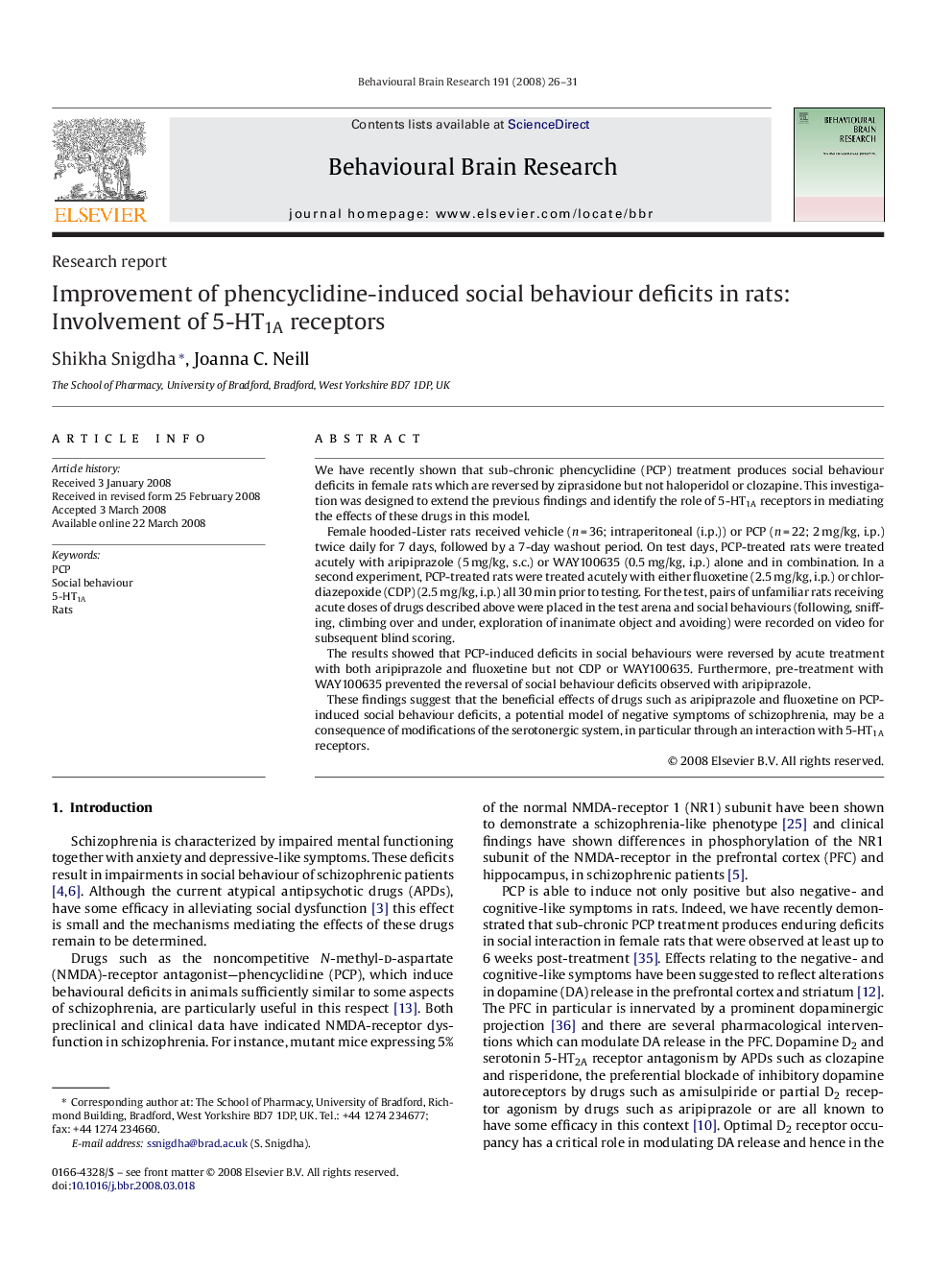| Article ID | Journal | Published Year | Pages | File Type |
|---|---|---|---|---|
| 4315165 | Behavioural Brain Research | 2008 | 6 Pages |
We have recently shown that sub-chronic phencyclidine (PCP) treatment produces social behaviour deficits in female rats which are reversed by ziprasidone but not haloperidol or clozapine. This investigation was designed to extend the previous findings and identify the role of 5-HT1A receptors in mediating the effects of these drugs in this model.Female hooded-Lister rats received vehicle (n = 36; intraperitoneal (i.p.)) or PCP (n = 22; 2 mg/kg, i.p.) twice daily for 7 days, followed by a 7-day washout period. On test days, PCP-treated rats were treated acutely with aripiprazole (5 mg/kg, s.c.) or WAY100635 (0.5 mg/kg, i.p.) alone and in combination. In a second experiment, PCP-treated rats were treated acutely with either fluoxetine (2.5 mg/kg, i.p.) or chlordiazepoxide (CDP) (2.5 mg/kg, i.p.) all 30 min prior to testing. For the test, pairs of unfamiliar rats receiving acute doses of drugs described above were placed in the test arena and social behaviours (following, sniffing, climbing over and under, exploration of inanimate object and avoiding) were recorded on video for subsequent blind scoring.The results showed that PCP-induced deficits in social behaviours were reversed by acute treatment with both aripiprazole and fluoxetine but not CDP or WAY100635. Furthermore, pre-treatment with WAY100635 prevented the reversal of social behaviour deficits observed with aripiprazole.These findings suggest that the beneficial effects of drugs such as aripiprazole and fluoxetine on PCP-induced social behaviour deficits, a potential model of negative symptoms of schizophrenia, may be a consequence of modifications of the serotonergic system, in particular through an interaction with 5-HT1A receptors.
